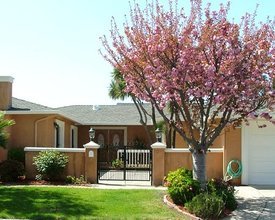Medicaid is a federally mandated, state-administered health plan for low-income Americans and qualified immigrants. It provides basic health care coverage for primary, emergency, and long-term care services, including hospitalization and nursing facility care.
Some states offer expanded Medicaid benefits, such as dental and vision care, prescription drug coverage, hospice care and enhanced screening and early intervention services. These benefits are often included in state-specific home and community-based waivers designed to save costs and reduce the number of Medicaid-funded nursing home placements.
Qualifying for Medi-Cal
In California, Medicaid is known as Medi-Cal. To qualify for no-cost coverage, seniors aged 65 and older must have a low income and few financial resources. Individual applicants can earn a maximum of $1,242 per month and own up to $2,000 in countable assets, and couples can earn up to $1,682 per month and own up to $3,000 in countable assets.
Some assets are excluded, most notably, a home in which the applicant and/or their spouse live. Unlike other states, California doesn’t limit the value of the excluded home.
When only one spouse requires Medi-Cal coverage and the community spouse is financially dependent on the applicant’s income, the applicant can transfer up to $3,161 of their income to the community spouse to prevent spousal impoverishment.
The community spouse is also entitled to half of the couple’s joint assets, up to a value of $126,420, in addition to the Medi-Cal exempt assets.
Assisted Living Home and Community-Based Medi-Cal Waiver
Seniors with full-scope Medi-Cal coverage who require the level of care normally provided in a nursing facility may qualify for enrollment in the Assisted Living waiver.
This home and community-based waiver provides fragile seniors with long-term personal care help in an assisted living setting in order to prevent nursing home placement.
Services are assigned based on medical need and may include housekeeping, skilled and intermittent nursing, personal care and adult day programming. Eligible seniors who wish to move from a nursing home into an assisted living facility may also be provided with transitional support.
Note: ALW services are only available in participating assisted living facilities, therefore, seniors accepted into the ALW program may be placed on a waiting list.
For more information on Medi-Cal, contact the Department of Aging and Community Services of San Joaquin County at (209) 468-1104.
To request an ALW assessment, contact Norcal, the San Joaquin County ALW care coordinator agency at (925) 519-6100.
















